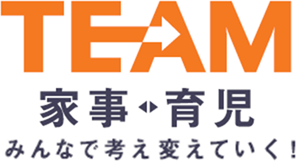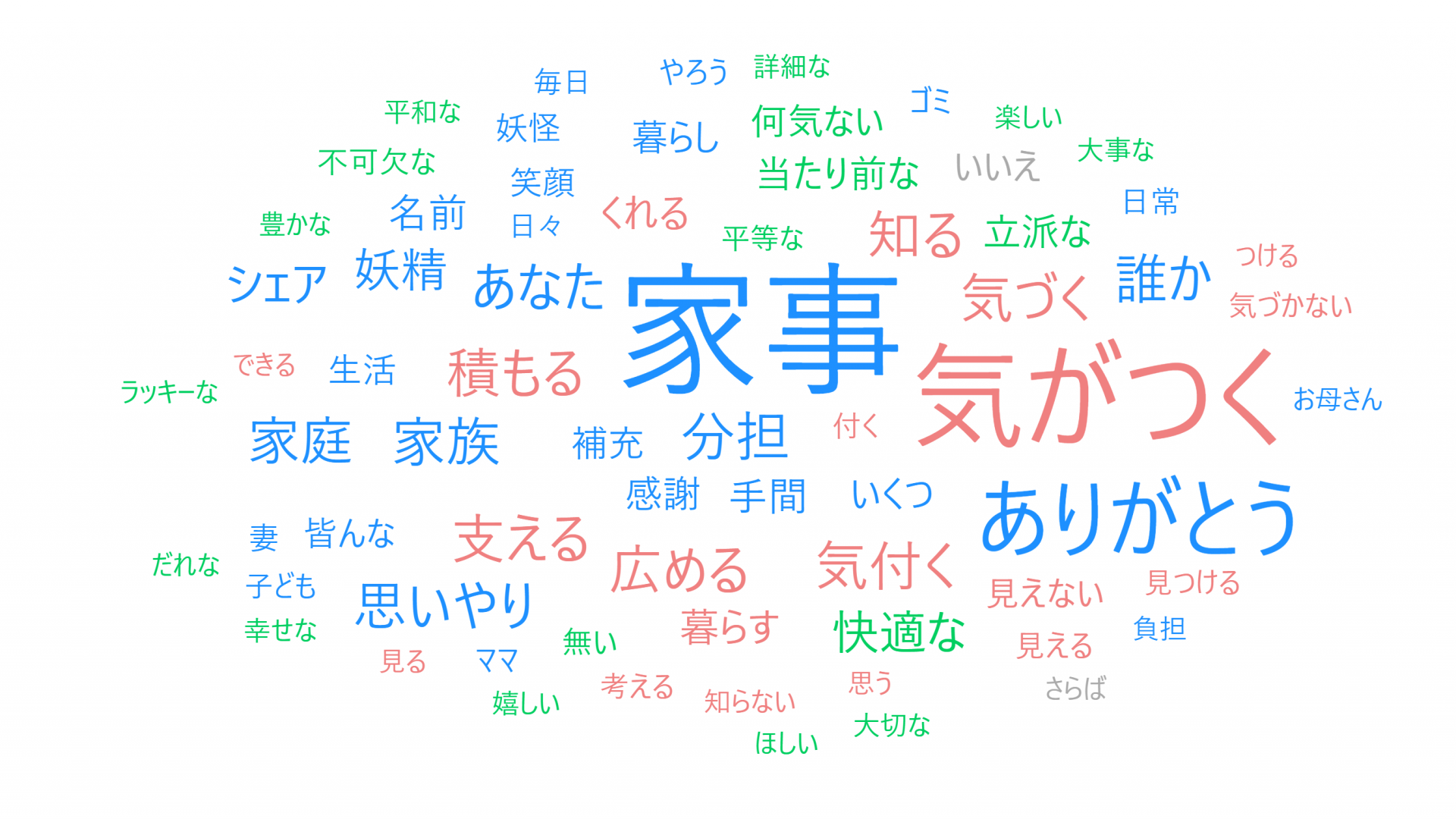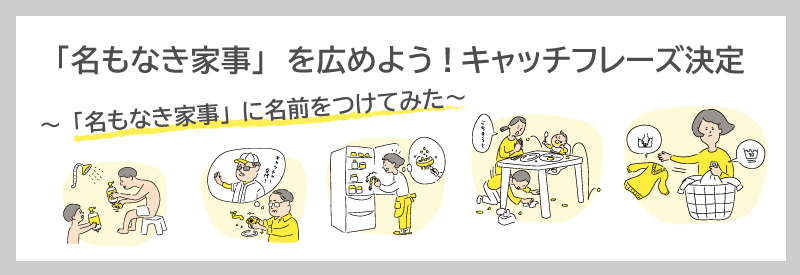
There are “nameless chores” that don’t have specific names but are indispensable in our daily lives, such as “refilling shampoo” and “replenishing toilet paper. We want people to be more aware of the existence of such “nameless chores! We want to spread the word! With this in mind, the Tokyo Metropolitan Government has been calling for entries for “catch phrases to promote “nameless chores” and “names for nameless chores. We are pleased to announce the winning entries, which were carefully selected by the judges!
Over 2,000 total applications! We looked at trends in the word cloud.
We received a total of 2,027 submissions for the “nameless chore” contest! This result shows the high level of interest in “nameless chores. What kind of comments and ideas did we actually receive? Let’s take a look at the submitted catchphrases on the “Word Cloud,” which displays frequently appearing words in large font.
Noticing” and “Thank you” were the standout results, with “Household chores” being the most common. After all, the first step is to notice. We can see that everyone thinks that this is the key to “housework without a name. In addition, many positive words such as “gratitude,” “consideration,” and “support” were used, conveying a positive attitude toward the task.
The winning entries are announced! The work selected from over 2,000 submissions ⁈
This year, a selection committee was held to choose the winning entries in the “Catchphrase” and “Naming” categories from among the many entries received. The judging panel consisted of the following four members, including popular copywriters and godparents of the “Nameless Housework. (Titles omitted)

Copywriter
Professor of Entrepreneurship, Musashino University
Goshi Umeda
He has won many domestic and international advertising awards. His representative works include “The World is Made of Somebody’s Work. If you are looking for a part-time job, Town Work. and others. He is also the author of “I named the nameless chores that never end and was surprised at how many there are” (Sanmark Publishing Co., Ltd.). (Sanmark Publishing Co., Ltd.)

Daiwa House Industry Co.
Senior Manager, Marketing Office, Housing Business Division
Ayako Tada
He noticed the existence of detailed, unnamed tasks and proposed the name “nameless housework. He is in charge of the “Housework Share House,” which was conceived at the Toyama branch to reduce the time and psychological burden of housework, and is now expanding the program nationwide. He is a first-class architect and interior coordinator.

Strategic Public Relations Department, Policy Planning Bureau
Chief, Strategic Public Relations
Yudai Okuyama
In order to strengthen the public relations capabilities of the Tokyo Metropolitan Government, he is in charge of implementing strategic public relations utilizing various transmission media and providing public relations support to the various bureaus.

Bureau of Lifestyle, Culture and Sports
Director, Women’s Activity Promotion Division, Department of Metropolitan Life
Akiko Ikenoya
In charge of efforts to promote women’s activities and men’s housework and childcare, etc., in order to realize a gender-equal society.
Catchphrase category: The key points for selection are “empathy” and “a flat perspective without being intrusive.
The judges were asked to score the entries in advance based on four points (empathy, message, originality, and positivity), and the results were discussed. The judges discussed the results based on the four points (empathy, message, uniqueness, and positivity). and “I didn’t know such an idea existed! The winning entries were selected based on their ability to be sympathetic to those who saw them, never from a “top-down” perspective, but from a flat viewpoint without being intrusive.
- I felt it was a very good catchphrase from the standpoint that it conveys the content without using limiting words such as “housework.” (Umeda)
- The goal we are aiming for, “kizuna” in short words, made my heart ache. (Tada)
- I thought they were kind words that were easy to understand and gave me a boost (Okuyama).
- I thought the comparison of “small” and “large” and the words “awareness” and “kizuna” were good and familiar. (Ikenoya)
- I found it easy to understand and pleasant with a gentle impression, making use of the kawayu (willow) form. (Umeda)
- I could really relate to it, replacing the negative element of “housework with no name” with a heartwarming positive word. (Tada)
- I felt that it would be easier for them to act with their partners and families in mind. (Okuyama)
- I thought it was very nice because there were no negative elements such as dissatisfaction, so it was not intrusive. (Ikenoya)
- Self-interest is an important element in “Housework with No Name”. I really liked the way you summarized it with “koto” and “goto” in a well-paced manner. (Umeda)
- I felt that the message was very good, conveying the importance of first taking it as one’s own personal matter. (Tada).
- It is good that the content encourages people to not only notice, but also to act on it as their own. (Okuyama)
- The rhythm of the language was pleasant and easy to remember, which I thought was wonderful. (Ikenoya)
There were many good entries, and the judging was heated. We are sure that those who have been or will be responsible for nameless household chores were able to choose a catchphrase that will not be left behind.
Naming Division: The selection points are humor and the ease of understanding that can be recognized just by listening to the name.
Here, too, the judges scored the films in advance based on three points (understandability, familiarity, and empathy), and we had a discussion based on the results. Understandable! Yes, yes! The selection process proceeded at a brisk pace, and five humorous works were finally selected. Let’s take a look at the selected works.
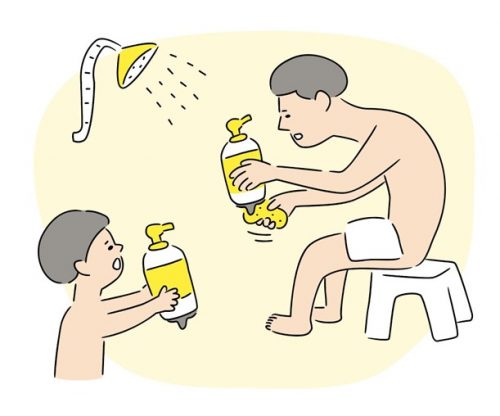
[Housework Description.
A sad chore of cleaning naked, noticing slimy places such as the backs of bottles and joints by chance in the bath.
Judges’ comments.
The expression that appeals to the viewer’s emotions as “unpleasantness” was unique and favorable.
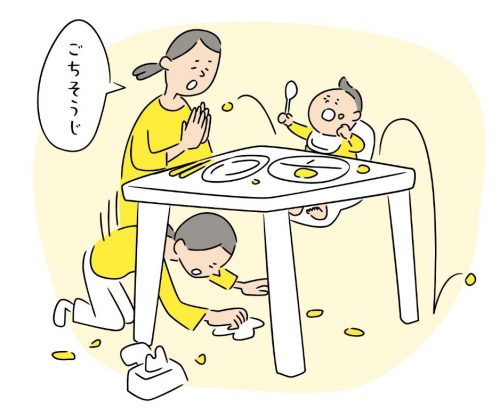
[Household chores.
Household chore of cleaning up food debris on and under the table and on the chairs after eating.
[Judges’ comments
This is an essential chore for families with preschoolers. I sympathized very much.
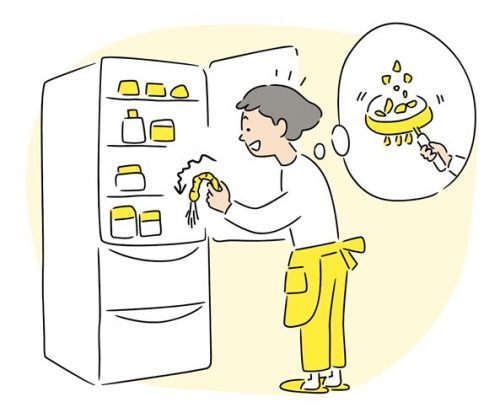
[Household chores
Household chores of cooking with leftover vegetables and uneaten food left over from cooking, and cooking with items that are close to their expiration date or with what is left over.
Judges’ comments.
The relatively negative word “leftovers” and the positive word “gourmet” are well combined and easy to understand.
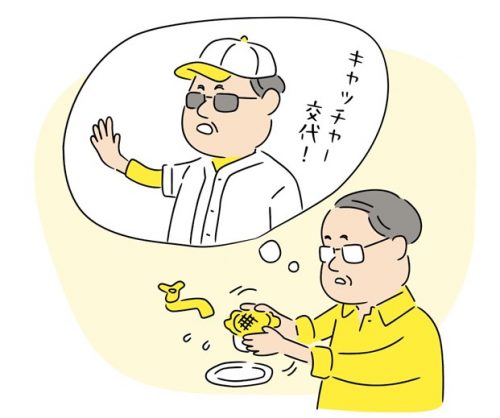
[Household chores.
Household chore of replacing nets that catch debris in drains.
Judges’ comments.
Easy to remember. I thought it was easy to remember, and I thought it would make me feel better if I said to myself, “Yes, I’ll take over as catcher.
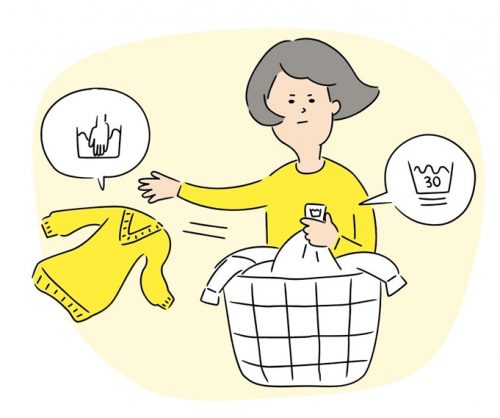
[Household chores
Household chores of sorting out whether to wash regular or fashionable clothes by looking at the laundry label.
Judges’ comments
This work is like an example of a well-written word.
The “nameless chore” First, notice it, and then act on it.
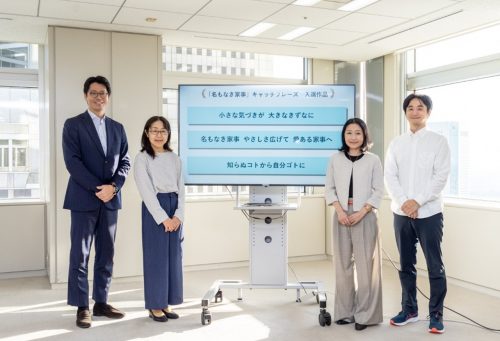
This was Tokyo’s first attempt to solicit the voices and ideas of “nameless household chores. By receiving real voices from everyone, we were able to make the catch copy and naming more realistic and resonant. We believe that there are many different situations regarding the “nameless chores,” with some people starting from the point of “awareness” and others already taking action. If each of us approaches “nameless chores” with “consideration” and “gratitude,” we can build deeper bonds with our partners and families. The Tokyo Metropolitan Government will continue its efforts to promote and educate people about the “nameless chores!

